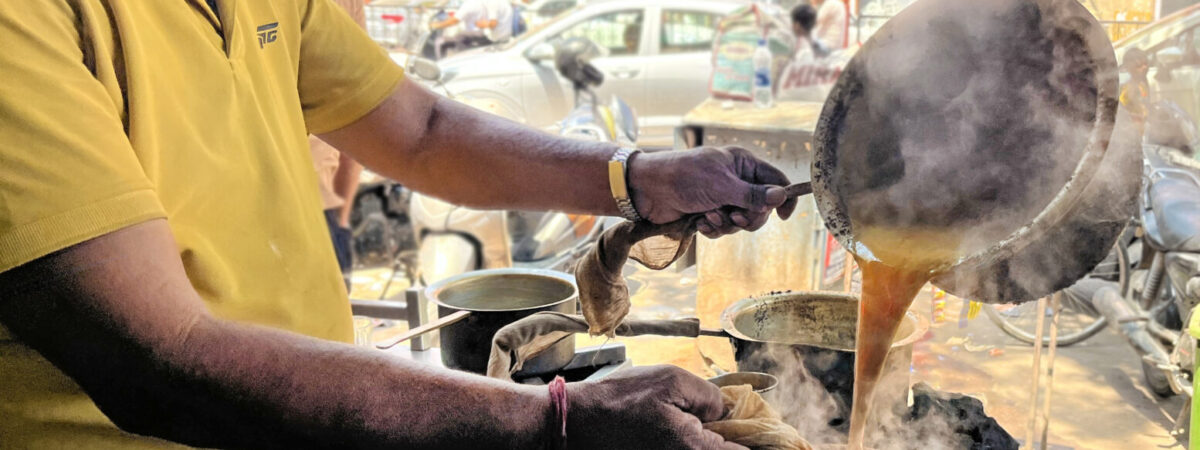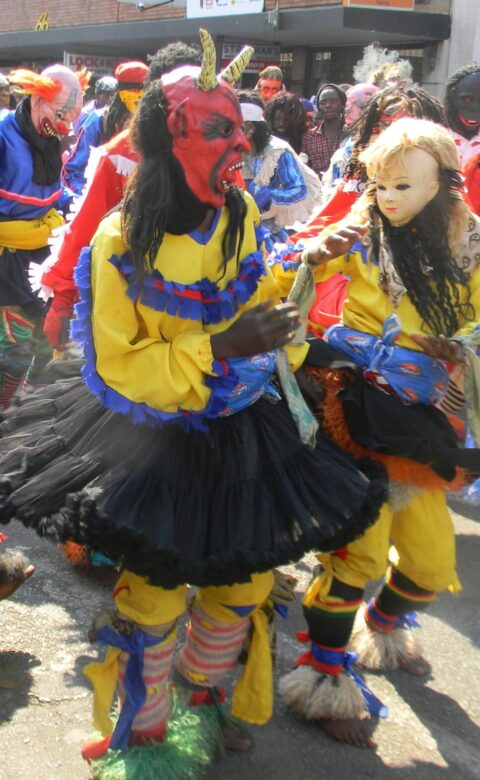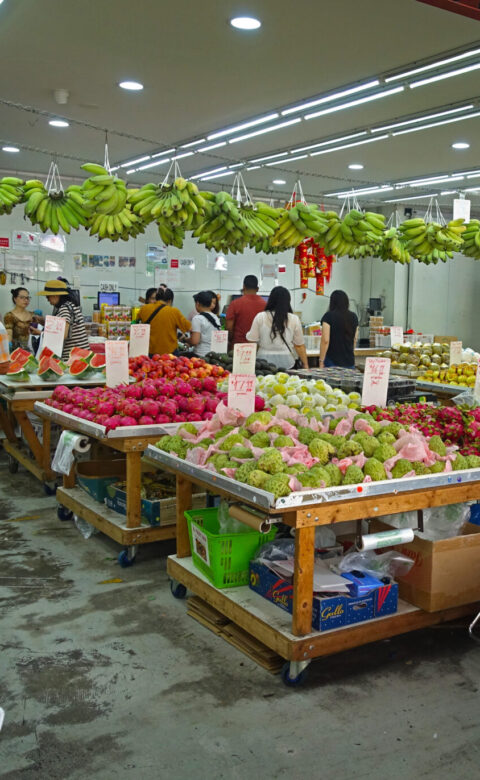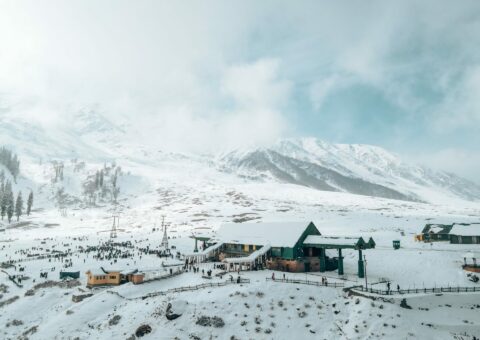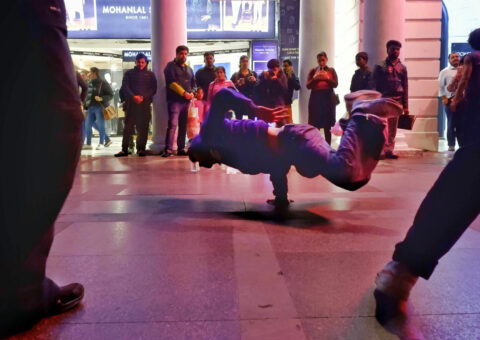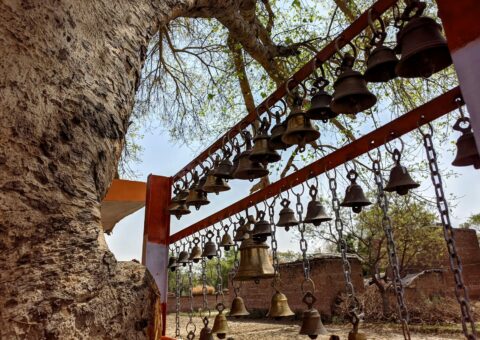It’s May, and the temperature in Jaipur has crept up by four degrees Celsius in just the last two weeks. People only leave their homes for important business, though kids still play cricket in the walled city’s narrow alleys. Due to the absence of air conditioners in the old shops, some owners have found refuge under an ancient banyan tree’s canopy. I am also sheltering beneath it on an aged iron stool, waiting for the best masala chai in the city.
Chai at this shop is served in a tall glass; it’s piping hot, milky, sweet, and has precisely the right mixture of spices. The freshness of ground green cardamom is so nourishing that with the first sip, I instantly feel energised.
The hammering of mortar and pestle gets my attention and I find myself gazing at a giant pot charred around the edges from years of use. Suresh, the senior employee here, follows the same careful process for every batch of chai. His lips are pressed together in concentration and furrows between his eyebrows become more noticeable as he adds the exact amount of tea, cardamom, milk, and sugar — the typical mixture for ‘everyday’ chai. The artistic way he stirs the tea as it brews makes him look like a magician searching for a secret sign while preparing a potion or looking into the future.
I have been visiting this place since I was in high school. Watching Suresh prepare chai was both the easiest and the most affordable entertainment. And the historical architecture of old Jaipur creates a perfect backdrop for his stage.
Jaipur is known for its uniformity in building style, immaculate township planning, and hospitality. The distinctive Pink City — once painted a rosy hue with a colour extracted from flower petals — is now battling against the garish neon signs trying to cling onto its archways. Jaipur is getting modernised rapidly and with each new fast-food centre, modern café, or chain restaurant barging its way in, an old tea shop or local restaurant is pushed out.
I am not against the change; change brings novelty. But I am concerned about the rapidity of this huge influx of the new. I am worried that the city may lose its originality. It needs the right balance, one that can only be struck by a sustainable approach to development.
That’s why sitting under this elderly banyan tree while sipping on my masala chai feels like a portal to times past; these little tea shops are the soul of old Jaipur. Drinking chai here is more than having a mere tea. I meet my friends here; we discuss cricket and politics. It’s a platform for social networking which does not require any internet connection or paid subscription. And sometimes, I sit contentedly on my own and just watch the world go by.
In the early 20th century, despite persistent campaigns by the determined transplanted Englishman to popularise tea as a local drink, it was not in high demand in India. English tea wasn’t blended for the Indian tastebuds and it never represented the local palate.
The country practically reinvented tea by adding spices to it. Of course, the English never dreamt that Indians would add the milk and sugar alongside the water, boiling all of it together cheerfully into a thick, aromatic cup. And so it came to pass that India accepted tea, but not before adding its own ‘balance’ to it.
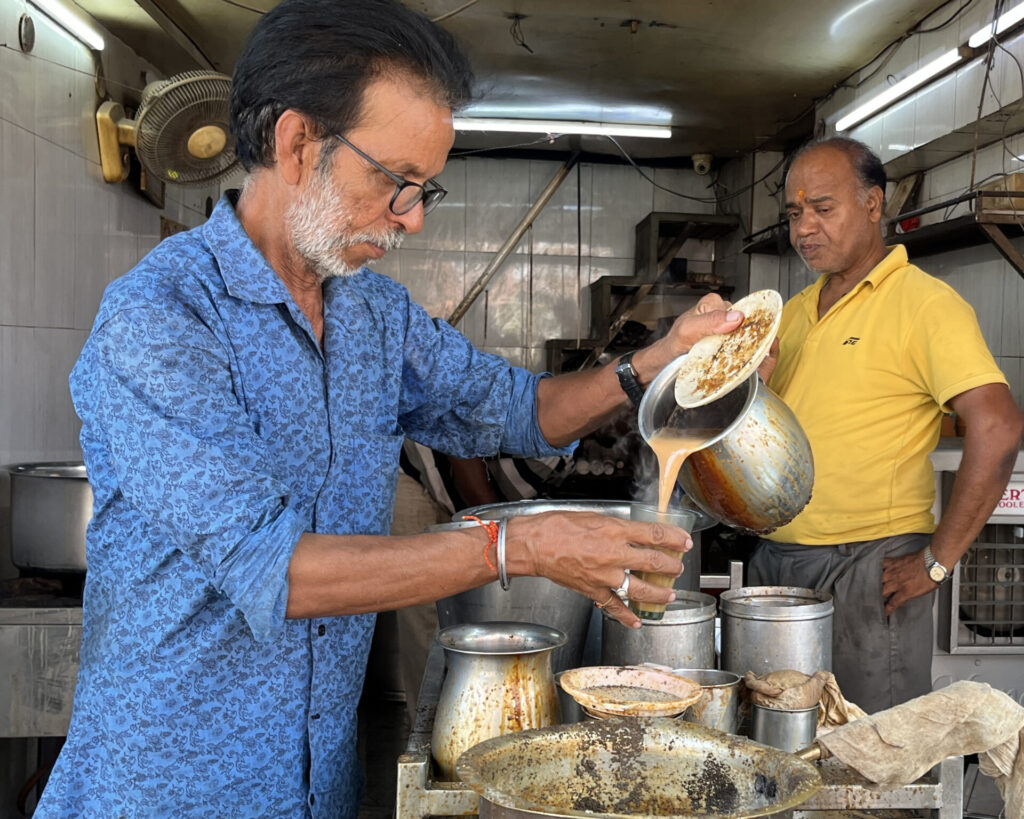
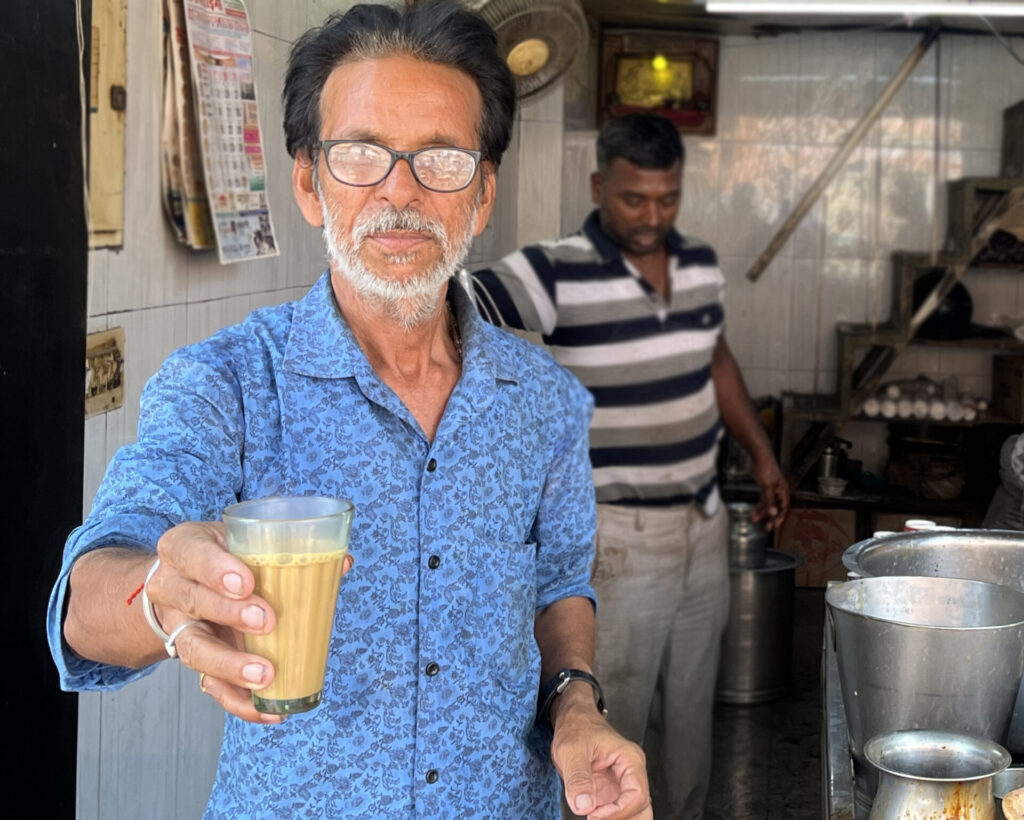
Back in the present, in these desperate times, my favourite ‘hole in a wall’ chai shop is the brightest beacon of hope. Suresh prepares more than 1000 tall glasses every day. ‘It is a family business,’ Ashok, who hands the cups of chai to people, proudly announces. ‘Three generations have been successfully pouring their passion and high spirits into every single cup of chai we serve here.’
I could not agree with Ashok more; their honest approach to what they do is one of the main reasons I visit frequently. In the mayhem of modernisation, they are holding their nerve and keeping their belief in the city alive. Their authentic chai, love for their culture, and sincerity have kept the business running while many others of their era have closed.
On a visit to India, even French President Emmanuel Macron could not resist chai prepared by hosts like Suresh. Another testament to the fact that enjoying chai is the most authentic of experiences and probably the best way to connect with the city and its people.
Suresh, Ashok, and the magical chai pot they tend are important reminders as Jaipur continues to develop. They won’t let chai die, and they will save our heritage and tradition as well. With each sip I take, the rush of new Jaipur slows down around me. The spell is only broken by an auto-rickshaw driver who wants to park under the tree where I am parked too, literally waking me up to rude reality.
The spices have pooled in the bottom of the cup and Ashok politely asks me to vacate my space for the next customer, making me realise that I have almost finished my chai. Before I go and get lost in the street’s hotchpotch again, I take the last gulp and hand the empty glass back to Ashok. No words are spoken but I know, and he knows — and even Suresh knows — that I will be back here tomorrow and the day after.

